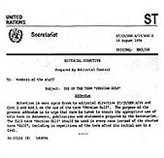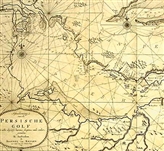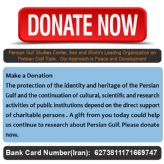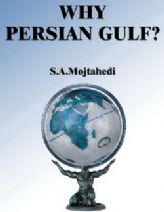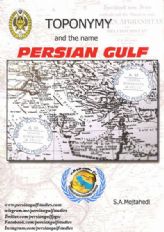Systematic torture in the UAE
Date: 8/5/2018 1:19:47 PM
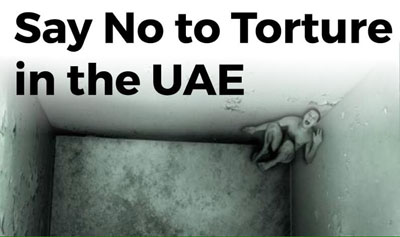
Systematic torture in the UAE
As every year, today is the occasion to highlight the work of all those who investigate and challenge the use of torture around the world and in the United Arab Emirates (UAE).
The International Center for Justice and Human Rights (ICJHR) expresses its concern aboutpersons in enforced disappearance as well as prisoners who are subjected to torture and ill-treatment. UAE authorities often use torture to extract confessions, including from non-nationals citizens, which is considered a grave violation of human rights.The ICJHR has reported numerous cases of torture, enforced disappearances and ill-treatment in UAE’s prisons, in particular in the famous Rezin prison. Political prisoners in this prison suffer from malnutrition and severe deterioration of their health. Families of detainees reported in 2014 that some prisoners often lost consciousness due to malnutrition and abuse. Prisoners of conscience are also subjected to various kinds of abuse in this jail, such as isolation, continuous inspections regardless of the physical sanctity or human dignity, ban of group prayers, confiscation of personal belongings and clothing, ban of visits, starvation and blackout policy.
Activists, jurists and lawyers are themselves threatened and intimidated during their work. In fact, Mohamed Al-Rokon who is a lawyer of international renown was imprisoned and maltreatedbecause he provided legal assistance to victims of human rights abuses in the UAE. In Fact, his sentence amounted to 10 years of prison. In May 2014, Al- Rokon was placed in solitary confinement and State security services forbade him any contact with his family in order to isolate him from the outside world.
Besides, many human rights defenders in UAE are imprisoned and tortured only because of their tweets. The case of the activist Osama Al-Najjar is one striking example, as he was convicted, in November 25, 2014, to 3 years of prison. Charges against him were mainly related to his activity on Twitter where he defended his father, Hussein Al-Najjar. Actually, He was held in a secret location where he has been tortured for 4 days with sharp objects and beaten on his legs until the lifeblood drained out. He was taken to the hospital after he was prevented from receiving care in time and his solitary confinement was extended 3 times. Osama was known for his activity on social media and his tweets about the ill-treatment of his father and the rest of the prisoners of conscience in Resin jail.
Salim Alaradi, a Libyan-born Canadian citizen, was arrested in UAE without any charge during a family vacation on August 28, 2014. Salim was put in solitary confinement during 114 days, in a cell without a bed or mattress but simply the bare concrete floor. His family has good reasons to believe that he was subjected to torture. His health rapidly declined and suffered from serious health conditions, some pre-existent and others due to the prison conditions such asasthma, high cholesterol and vulnerabilities due to an open-heart surgery. He has developed new conditions in his back in addition to a major weight loss, eye infection and bronchitis.
After being arrested for unknown reasons, 4 of the 10 Libyan detainees who are Bashir Al-Sabah, Refaat Haddagah, Tahir Kalvat and Mohammed Al-Aradi, were released by UAE authorities in Yet, during their detention, they faced torture and were deprived of sleep for a long period preceding the investigation. They were also in isolation from the outside world throughout the period of their detention.Furthermore, Emirates 94 group has been exposed to systematic punishment in prisons for months in flagrant violation of their rights. Ill-treatment of detainees has led to a state of emaciation and yellowing.
Ahmad Zeidan, a British student was arrested along with seven other young men in December 2013. He was accused of possessing and selling narcotics, and faced a potential death sentence. He was tortured into signing a false confession and sentenced to 9 years in prison in Sharjah. He was hooded and kept in solitary confinement for 2 days, stripped naked, threatened with rape, and viciously beaten. After more than a week of torture, he was forced to sign a legal statement in Arabic, a language he does not understand in the absence of an interpreter. In April 2014, Ahmad protested the conditions in the UAE prison. As punishment, he was hooded and placed in solitary confinement for several days, and denied access to food and water for long stretches of time. All of his co-defendants have either been fully pardoned or acquitted, except him as is still in jail.
On this day, the ICJHR highlights the fact that the detainees are subjected to various forms of torture. Torture methods commonly used are various and include: beating, sleep deprivation, exposure to extreme temperatures, electric shocks, uprooted nails, severe beatings in sensitive places with sharp objects, rape and death threats and constant intimidation, exposure to continuous bright lights for the destruction of nerves, threat to families severe beatings, waterboarding, mock executions, hooding and isolation, use of stress positions, sexual abuse, sexual assault, and the threat of sexual assault. Other practices those aim to destroy the mental, psychological and physical health of detainees and extort confessions are used.
According to all relevant instruments like the Convention against torture and other cruel, inhuman or degrading treatment or punishment, which UAE ratified in 2012, and their related-optional protocol, torture is absolutely prohibited and cannot be justified under any circumstances. The article 26 of the UAE constitution also prohibits torture.The ICJHR strongly condemns these heinous practices and violations of the UAE Constitution,international conventions and treaties and reminds the UAE to fulfil its international obligations to exert maximum efforts for the prevention of torture and fight against all acts of torture and impartially investigate all allegations and prosecute responsible.
The ICJHR calls the UAE government to:
1. Urgently stop torture and ill-treatment in UAE
2. Open independent and impartial inquiry about the practice of torture in the prisons of UAE
3. Take into account the recommendations of the UN Special Rapporteur on the independence of judges and lawyers
4. Allow international organizations and the Special Rapporteurs on the question of torture and the independence of judges to visit prisons
5. Sign the Optional Protocol to the Convention against Torture
6. Lift its reservations to articles of the Convention against Torture on complaints
7. Give compensation to the victims of torture and their families

